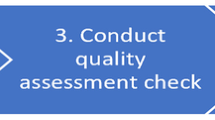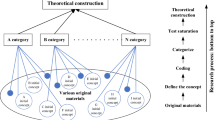Abstract
The concept of the Knowledge City is a subfield of the Knowledge-Based Development which, during the last years, has attracted the interest of many researchers and practitioners. Various cities around the world have also undertaken considerable efforts and initiatives so as to be developed or to enhance their status as a Knowledge City. However, their approaches were rather ad-hoc and spontaneous and were not based on a pre-defined methodology. The research community has only recently begun to concentrate on the direction to substantiate the fundamental principles of Knowledge Cities and to define unified methodologies for their design, development and operation. Under this prism, the authors have recently proposed such a methodology, called KnowCis. The application of this methodology is currently in progress, on a Greek municipality. The municipality incorporates some special characteristics and features that render it a very advantageous case for this pilot application. This paper refers to the characteristics of the municipality and to the application of the KnowCis methodology, presents the progress of the effort and the preliminary results until now and provides useful insights on the forthcoming actions and plans of the city's administration. The outcomes, results and lessons-learnt of this pilot application will permit to fine-tune the KnowCis methodology.




Similar content being viewed by others
References
Carrillo FJ (2004) Capital cities: a taxonomy of capital accounts for knowledge cities. Journal of Knowledge Management 8 (5), 28–46.
Carrillo FJ (2006) Introduction: the century of knowledge cities. In Knowledge Cities: Approaches, Experiences and Perspectives (CARRILLO J, Ed), pp xi–xv, Butterworth-Heinemann/Elsevier, Oxford.
Chatzkel J (2006) Greater Phoenix as a knowledge capital. In Knowledge Cities: Approaches, Experiences and Perspectives (CARRILLO J, Ed), pp 135–144, Butterworth-Heinemann/Elsevier, Oxford.
Drucker P (1994) The Post-Capitalist Society 6–9, New York, Harper-Collins.
Drucker P (1999) The Management Challenges for the 21st Century, New York: Harper-Collins.
Edvinsson L and Malone MS (1997) Intellectual Capital – Realizing Your Company's True Value By Finding Its Hidden Brainpower. Harper Business.
Entovation Group Alliance (2004) Actualizing the High Performance Knowledge City. 4th International E100 Roundtable, Founding of the Knowledge Observatory, Barcelona.
Ergazakis K, Karnezis K, Metaxiotis K and Psarras J (2005) Knowledge management in enterprises: a research agenda. Intelligent Systems in Accounting, Finance and Management 13, 17–26.
Ergazakis K, Metaxiotis K and Psarras J (2004) Towards knowledge cities: conceptual analysis and success stories. Journal of Knowledge Management 8 (5), 5–15.
Ergazakis K, Metaxiotis K and Psarras J (2006a) An emerging pattern of Successful Knowledge Cities' Main Features. In (eds) Knowledge Cities: Approaches, Experiences and Perspectives (CARRILLO J, Ed), pp 3–15, Butterworth-Heinemann/Elsevier, Oxford.
Ergazakis K, Metaxiotis K and Psarras J (2006b) Knowledge cities: the answer to the needs of the knowledge-based development. VINE: The Journal of Information and Knowledge Management Systems 36 (1), 67–81.
Ergazakis K, Metaxiotis K, Psarras J and Askounis D (2006c) KnowCis: a unified methodological approach for the development of knowledge cities. Under publication in the Journal of Knowledge Management (Issue of September 2006).
Ergazakis K, Metaxiotis K and Psarras J (2006d) A coherent framework for building successful KCS in the context of the knowledge-based economy. Knowledge Management Research & Practice 4 (1), 46–59.
Eurocities (2005) Charter on Rights of Citizens in the Knowledge Society available at: http://ec|.europa.eu/idabc/en/document/4541/330|.
Lambooy JG (2006) Knowledge dissemination and innovation in urban regions: an evolutionary perspective. In Knowledge Cities: Approaches, Experiences and Perspectives (CARRILLO J, Ed), pp 223. Butterworth-Heinemann/Elsevier, Oxford.
Landry C (2000) The Creative City xiii. Earthscan, London.
Longworth N (1999) Making Lifelong Learning Work: Learning Cities for a Learning Century 29. London: Kogan Page.
Martínez SD (2006) A comparative framework for knowledge cities. In Knowledge Cities: Approaches, Experiences and Perspectives (CARRILLO J, Ed), pp 17–30, Butterworth-Heinemann/Elsevier, Oxford.
Metaxiotis K, Ergazakis K and Psarras J (2005) Exploring the world of knowledge management: agreements and disagreements in the academic/practitioner community. Journal of Knowledge Management 9 (2), 6–18.
Sakaiya T (1991) The Knowledge-Value Revolution or a History of the Future xvii. Kondasha: New York.
Siemieniuch CE and Sinclair MA (2004) A framework for organisational readiness for knowledge management. International Journal of Operations & Production Management 24 (1), 79–98.
Tuggle FD and Shaw NC (2000) The effect of organizational culture on the implementation of knowledge management. In Florida Artificial Intelligence Research Symposium (FLAIRS). Orlando, FL.
Author information
Authors and Affiliations
Corresponding author
Rights and permissions
About this article
Cite this article
Ergazakis, K., Metaxiotis, K., Psarras, J. et al. Applying the KnowCis methodology to a Greek municipality: a case study. Knowl Manage Res Pract 4, 293–309 (2006). https://doi.org/10.1057/palgrave.kmrp.8500114
Received:
Accepted:
Published:
Issue Date:
DOI: https://doi.org/10.1057/palgrave.kmrp.8500114




